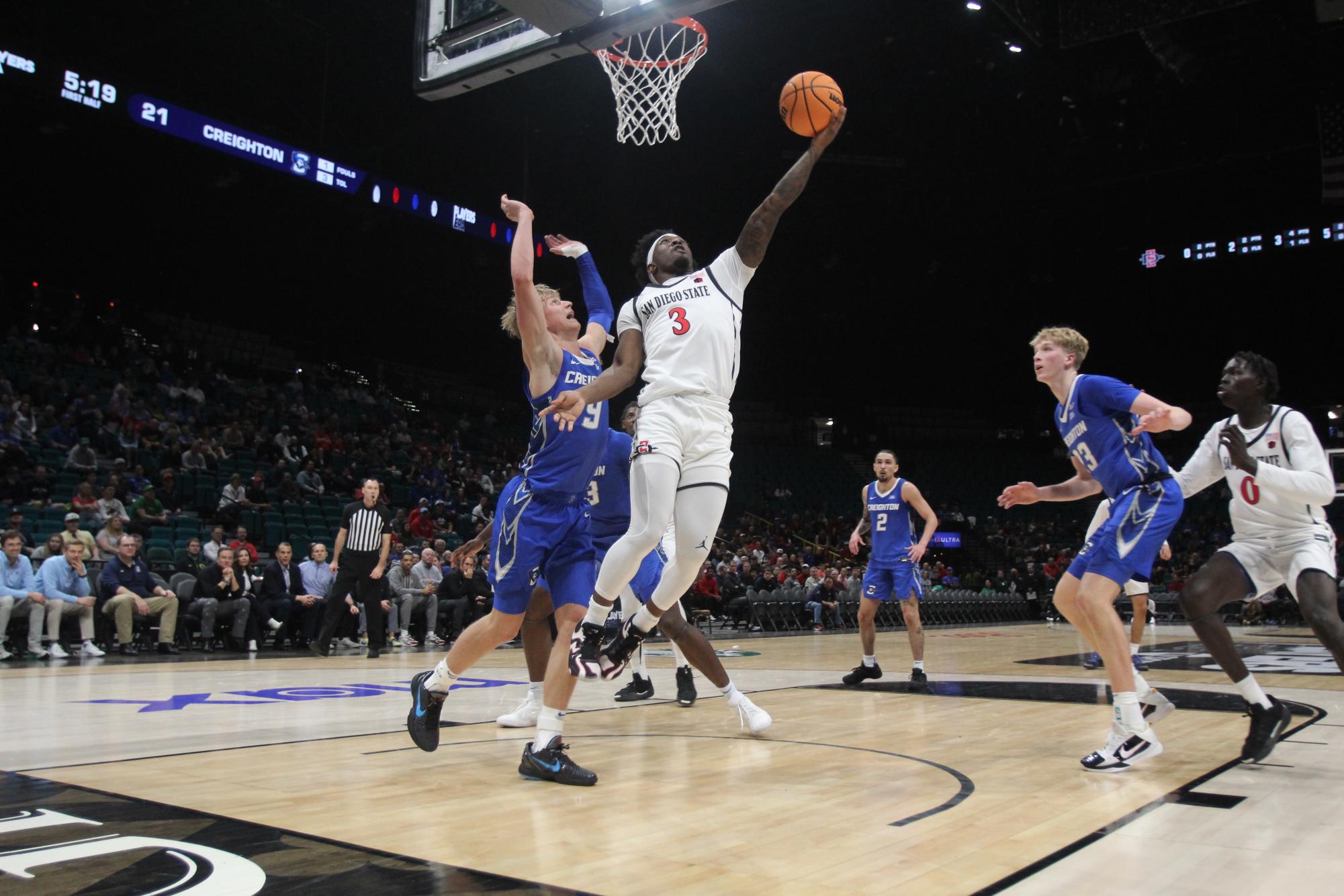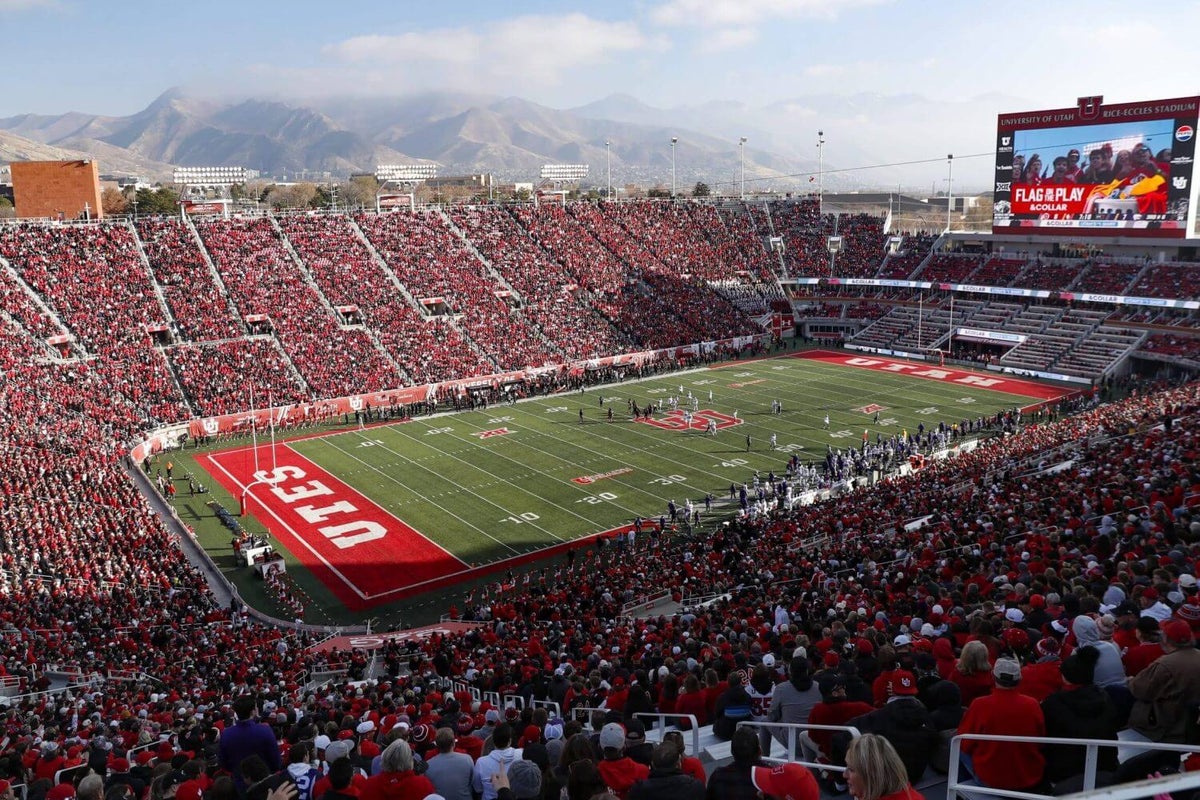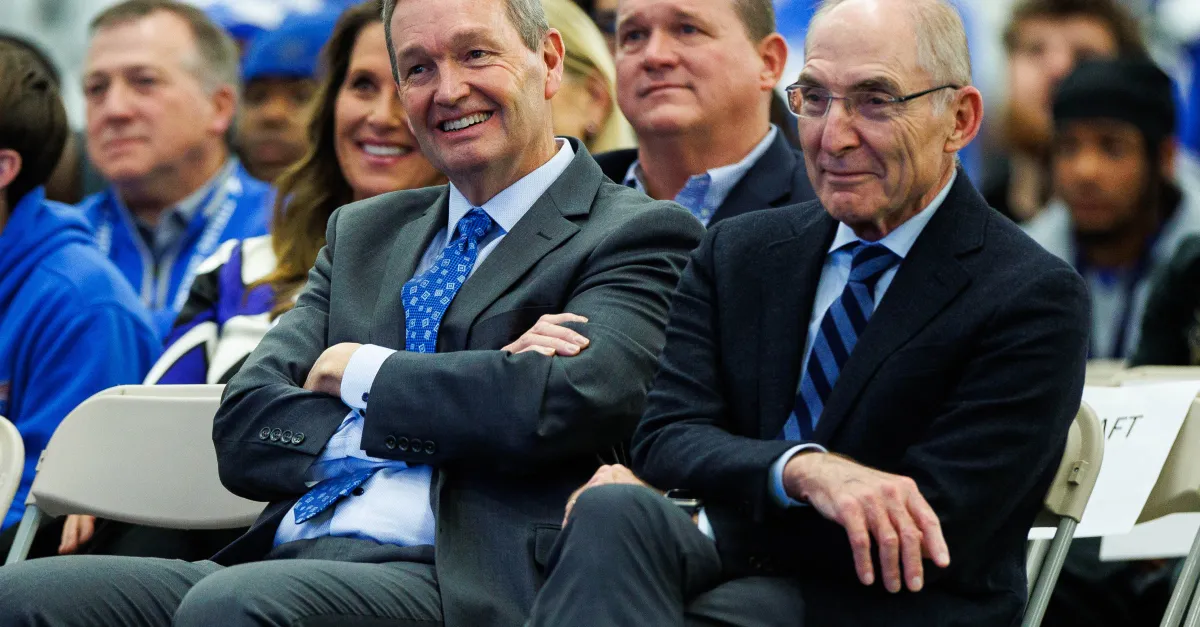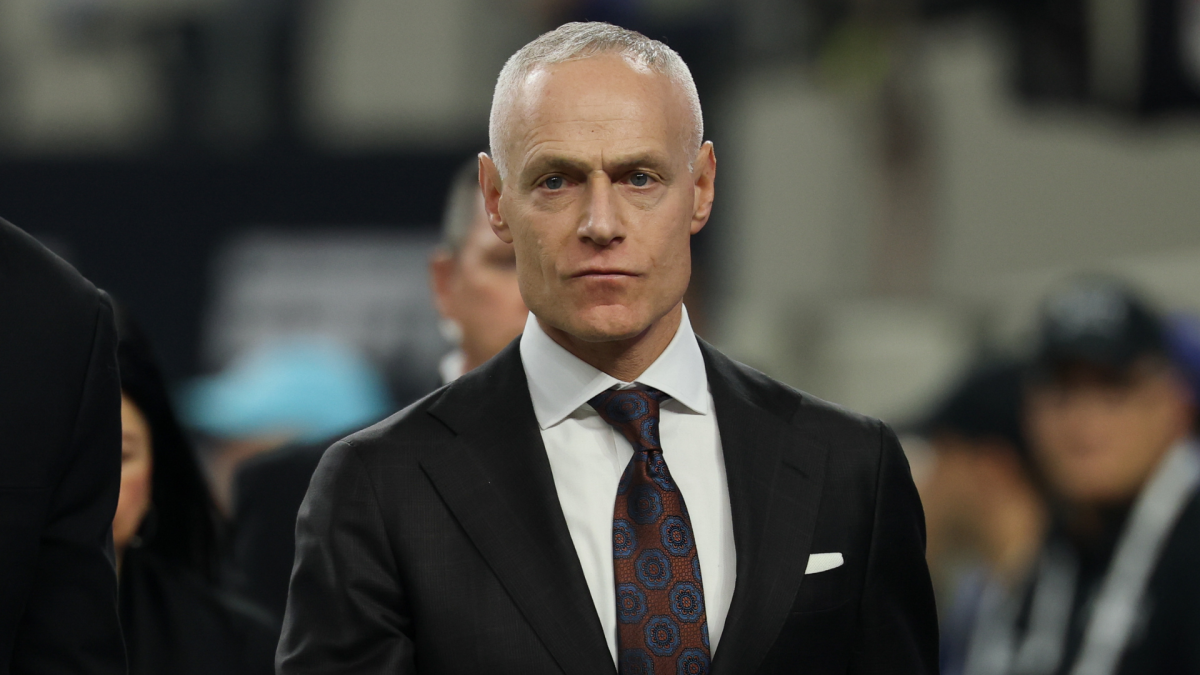NIL
How NIL and innovative tournaments are redefining college basketball scheduling



“I think it exceeded our expectations in just about every way,” Berger said after the inaugural event. “We got super lucky with just how competitive the games were. … From my perspective, in my first time as an event operator, I was really thankful all the coaches were easy to work with. [The NIL obligations] were smoother than I expected.”
SDSU head coach Brian Dutcher felt participating in the tournament brought the best opportunities.
In recent years, the landscape of college basketball scheduling has experienced a dramatic shift. One of the most significant changes has come in the form of the growing influence of Name, Image and Likeness (NIL) deals. These deals have reshaped the way programs approach nonconference scheduling, especially with the evolving dynamics of multi-team events (MTEs). As these MTEs are becoming less appealing for high-major programs, a new breed of tournaments and scheduling methods are emerging, each with a focus on increasing financial opportunities for players.
“When you’re able to pay players and when you’re able to use the NIL for a good reason and have people come out here and [it’s] crazy competition, Hall of Fame coaches, All-American players, this is the best place to be right now,” said Texas A&M forward Henry Coleman III.
Enter the Players Era Festival, a new event this past November designed to tap into this evolving market. Co-founded by Seth Berger, the Players Era Festival aims to provide college basketball programs with significant NIL opportunities, while also offering a competitive platform. The inaugural edition of the tournament in 2024 was considered a success, with eight teams—including Houston, Alabama, Creighton, Notre Dame, Oregon, Rutgers, San Diego State and Texas A&M—participating. Each team earned at least million in NIL opportunities, with the added promise of more substantial payouts for continued participation in future years.
“It was a no-brainer for us. It was like, yes, anytime, anyplace. And the question was, you know, is the money really going to be there? But for us, the money, yeah, the money is critically important,” Dutcher said. “For us to play this talent level that we get to play and our flight from our campus — I don’t want to tell them this because they might not pay us, but I would have come for free to play this kind of competition.”
The event’s appeal lies not only in its financial rewards but in its modernized structure.
Despite the skepticism surrounding the viability of the new format, the Players Era Festival has already secured multiple years of funding and partnerships, with guarantees from MGM and TNT Sports ensuring its place on the college basketball calendar for years to come.
“When I talked to Seth and he told me who was coming, or who he was trying to get, I’m like, OK, those are really good teams so it’s going to be a really good tournament, and Vegas is close for us,” said Oregon coach Dana Altman. “If our guys get this money, get paid like this, man, that’s icing on the cake.”
“For everything we do, we’re completely aligned with the players,” Berger said. “As big an impact as we can have on college basketball with Players Era, that will be continuing to put money into the pockets of college basketball players.”
San Diego State was one of the eight teams that participated last year, and all eight will be returning to this year’s Players Era Festival.
For Berger, the goal is to establish the Players Era Festival as the premier November event, comparing it to the first leg of a Triple Crown, with plans for a women’s tournament already in place later this year, and potentially even summer events if the NCAA opens up exhibition calendars.
NIL
College football coach addresses loss of $1.8 million QB to transfer portal

Arizona State finished 8-4 (6-3 Big 12) and will head to the Sun Bowl, marking another successful season under third-year head coach Kenny Dillingham.
Despite the winning record, the narrative has centered on last year’s unexpected Big 12 title run and 11-3 finish, along with this season’s offensive struggles, largely due to injuries such as Sam Leavitt’s season-ending foot injury.
Leavitt’s season ended after seven games and 1,628 passing yards, 10 touchdowns, and three interceptions, a sharp contrast to his 2024 breakout, when he earned Big 12 Freshman of the Year and All-Big 12 recognition with 2,885 passing yards, 24 touchdowns, and 443 rushing yards with five rushing scores.
Persistent chatter and Leavitt’s absence from team events sparked transfer speculation, and on Monday, reports confirmed he plans to enter the portal.
On Monday, coach Dillingham fielded media questions about Leavitt’s future at ASU but stopped short of making any formal announcement.
“I’m going to let that leave that to Sam’s team, out of respect for him, for how they want to progress from that,” Dillingham said. “I love Sam. Sam grew so much here, he really did, and I grew so much learning from Sam. Whatever his future holds, I wish him nothing but the best. I absolutely want to see him succeed.”
“With that, I’m very, very confident that we’re going to have a really, really good quarterback at Arizona State,” Dillingham added.
Kenny Dillingham on Sam Leavitt’s future status at ASU:
“I’m gonna leave that to Sam’s team…I love Sam. Sam grew so much here….Whatever his future holds, I wish him nothing but the best…I’m very very confident that we’re gonna have really really good QB at Arizona State.” pic.twitter.com/rIh9wvQBq5
— Blake Niemann (@Blakes_Take2) December 8, 2025
On the roster, Arizona State is not without alternatives.
True freshman Cameron Dyer (four-star recruit) remains on the depth chart and has been cleared to play, while ASU’s 2026 class features Jake Fette, a four-star dual-threat signee who enrolled early.
Those internal options, along with the possibility of adding an experienced passer via the portal, give Dillingham multiple pathways to attempt to replace Leavitt’s production.
Leavitt is also one of the more marketable athletes in college football, with a reported NIL valuation of around $1.8 million.

After a poor 3-9 start to the program, Dillingham led Arizona State to an 11–3 season, a Big 12 title, and a College Football Playoff berth in 2024, earning coach-of-the-year recognition for that run.
However, while Dillingham’s work drew national attention a year ago, his challenge now is sustaining momentum, finding Leavitt’s replacement, managing NIL pressures, and guarding against recruiting reverberations from a marquee departure.
Read More at College Football HQ
- Former 5-star QB announces return to college football for 2026 season
- Major college football AD responds to potential departure of $54 million head coach
- $1.2 million college football coach named candidate to replace former Pac-12 head coach
- 34-touchdown college football quarterback enters transfer portal
NIL
Troy Aikman Says Quiet Part Out Loud About Dirty State Of College Football

Troy Aikman is totally out on NIL after getting burned.
Troy Aikman didn’t hold back when discussing the current state of college football and NIL.
Despite the fact I might sound like an old man yelling at the clouds, everyone with eyes and a functioning brain can see that college football is going through an unprecedented era of change.
The main driver?
Money.
NIL has completely reshaped college sports, and none more than college football. Players cut and run for bigger checks, rosters have to be rebuilt yearly, and it feels like loyalty and commitment are dying.

Troy Aikman isn’t a big fan of the current state of college football. (Photo by Sam Hodde/Getty Images)
Troy Aikman crushes current state of college football.
Well, it sounds like the Dallas Cowboys legend and current ESPN broadcaster has had enough, and he’s not spending one more penny on NIL after feeling like he got burned.
“I gave money to a kid. I won’t mention who. I’ve done it one time at UCLA. Never met the young man. He was there a year, he left after the year. I wrote a sizable check, and he went to another school. I didn’t even get so much as a thank you note. It’s one of those deals to where I’m done with NIL. I mean, I wanna see UCLA be successful, but I’m done with it,” Aikman said in an interview with Richard Deitsch, according to NBC Sports.

Troy Aikman says he’s done cutting NIL checks for UCLA. (Photo by Mike Carlson/Getty Images)
I think it’s fair to say the frustration Aikman shared is felt by a lot of people in similar situations. Writing a check for a *SINGLE YEAR* of a player who then left and never even said thank you is dirty work.
There’s no way to justify spending money in that fashion. There’s an argument NIL could be an investment if the payoff is significant.
Spending cash for a single year of action from a player for a bad football program is a total waste. Aikman might as well have put the money in a pile and lit it on fire.
At what point do the people writing checks just decide enough is enough and save their money? Everything has a breaking point. College football is racing towards it.

Troy Aikman trashed the current state of college football amid an infusion of NIL money. (Photo by Allen Berezovsky/WireImage via Getty Images)
What do you think about Aikman’s stance? Agree? Disagree? Let me know at David.Hookstead@outkick.com.
NIL
The risks and rewards of Utah’s private equity plans: Will others around college sports follow?

By Matt Baker, Justin Williams and Stewart Mandel
Utah took college sports’ biggest step into private equity yet Tuesday when it approved a plan to partner with a private investment firm, Otro Capital, which would have an ownership stake in a new, for-profit business to fund Utes athletics and increase revenue.
The first-of-its-kind partnership comes with risks, and the terms must still be finalized after receiving unanimous approval Tuesday from the university’s board of trustees. But Utah administrators billed it as a nine-figure venture that could stabilize the Utes in a period of nationwide college athletics upheaval. It’s also the clearest window yet into a complex model schools across the country have been assessing for more than two years, a model with dynamic risks and rewards that could transform the heart of major college athletics.
“The upside is the difference between surviving and thriving,” university CFO Anthony Wagner said.
Here’s how the private-equity partnership would work and how it fits into the national landscape:
How will this work?
The school started a new company called Utah Brands & Entertainment. The Utes will own most of this company, but Otro Capital will also own part of it. The new company will handle some things most athletic departments do (like ticketing, events, sponsorships and NIL) but try to do them even better to make more money for the school and the investment firm.
The Utes would remain in control of big decisions like hiring/firing coaches and scheduling. Although the company will distribute NIL payments to players, the Utes would still control who gets how much.
The company will be under the university’s foundation and chaired by the Utes’ athletic director. On a potential seven-person board, the athletic director and three other Utah foundation members would be joined by two members from Otro Capital and another university supporter/investor.
The company would submit audits to Utah’s trustees, and the university would have the ability to buy back its share of the company from Otro Capital.
During a panel discussion at the SBJ Intercollegiate Athletics Forum on Tuesday, NCAA president Charlie Baker called the deal “really well thought out and really well designed” because the school still controls athletics’ decision-making process. Yahoo! Sports reported Tuesday that the Utes cleared the proposal with the NCAA.
How much money is involved?
No specific dollar figures were mentioned during the board presentation and discussion, but school president Taylor Randall said the platform will allow the Utes to raise “hundreds of millions of dollars over time.”
“This is not a one-time transaction,” Randall said.
That said, the partnership is expected to include a significant initial transaction. Athletic director Mark Harlan called a “short-term solution” of capital something “that’s very important” for the program. Trustees discussed the possibility of a seven-year term to the partnership.
Why did Utah jump at this deal before any other school/league?
The Utes were caught between the rising costs of college sports and the growing gap between the SEC/Big Ten and everyone else. When schools were allowed to start paying players directly this year, that added a $20.5 million expense for Utah and every other team that wants to compete nationally. That expense is harder for schools in the Big 12 and ACC to fund because, as Harlan said, they’re “certainly tens of millions behind other conferences.”
Utah administrators said they did not want to raise student fees to fund athletics. They didn’t want to cut sports or cut academic/research programs, either. Because the status quo, Randall said, “jeopardized the future” of Utah as a powerful program, the Utes decided to become the first program to make this move.
“There’s equal risk of actually not doing anything,” Randall said.
What are the risks?
Because financial details are either not yet finalized or not public, we can’t fully assess them. But generally, private equity groups don’t get into partnerships to lose money. What happens if this venture doesn’t make as much as both sides expect?
Foundation CEO David Anderson acknowledged a “tension” between commercial success and the university’s mission. Utah administrators said in the presentation that the school would be able to veto a sponsorship opportunity that doesn’t align with its values, but how might that work in practice?
A rosier risk is that Utah undervalued itself because it’s the first program to make a deal like this. Anderson told the board that if the deal becomes below market value, Otro Capital will effectively have to match the new numbers.
Who is Otro Capital?
It describes itself as an “operator-led private equity firm with deep expertise” in sports, media and entertainment. The portfolio for the New York-based firm includes FlexWork Sports (a marketing/event group focused on youth camps) and a stake in the Formula One racing team BWT Alpine.
One of Otro’s co-founders, Alec Scheiner, was the Cleveland Browns’ president from 2012 to ’16. The other, Brent Stehlik, worked in pro sports with NFL, MLB and NHL franchises.
Is this the start of a trend?
Probably.
A few schools (like Kentucky and Clemson) have already formed companies to handle some of the business of college athletics. Utah simply took that idea a step further by adding an outside investor to the mix. The Utes aren’t the only program in these financial straits, so don’t be surprised if others follow to the same proposed solution.
What’s the broader relationship between private equity/capital and college sports?
Schools and conferences have been looking into outside money for a long time; Utah’s deal has been in the works for two years.
Florida State seriously explored a similar idea in 2023 but stopped short of executing anything. The Big 12 previously considered conference-wide private equity and capital deals in ’24 and early ’25 but never garnered enough support among its members. “We’re just not ready to jump in just yet,” Big 12 commissioner Brett Yormark told Front Office Sports this May.
The Big Ten spent more than a year exploring similar opportunities before a nontraditional investor emerged this summer: UC Investments, a non-profit public pension and arm of the UC system, offered Big Ten members $2.4 billion in capital in exchange for a 10 percent stake in a newly formed company that would hold the league’s media and sponsorship rights. That deal is now on hold due to public opposition from two members, Michigan and USC. Michigan board chairman Mark Bernstein has called the proposal akin to “a payday loan.”
NIL
DeSantis Talks College Football, Calls for Reforms to NIL and Transfer Portal · The Floridian

Gov. Ron DeSantis criticized the current structure of college football’s name, image, and likeness (NIL) policies and players’ use of the transfer portal to move to different schools in an exclusive interview with The Floridian publisher Javier Manjarres.
“This whole NIL and transfer portal has got to be worked out a little bit,” DeSantis said. “If they’re selling your jersey with your name on the back, you should get money for it if they are using your name, image, and likeness.”
Gov. DeSantis signed a bill allowing college athletes to profit from their name, image, and likeness back in 2020. It was later amended to allow schools, coaches, and athletic departments to assist athletes in the NIL process so Florida could stay on an even playing field with other states that had adopted similar policies.
While the governor has advocated for more player rights, he critcized the use of college football’s transfer portal, which has arguably overrun the sport with player transformers and fans wondering who stayed at their flagship school from year to year.
According to a report from NBC Sports, the number of FBS [Football Bowl Subdivision] transfers increased from 1,561 in 2018-19 to over 3,700 in last year’s cycle. FBS transfers from scholarship players also significantly rose over the past several years.
“To then say, I played three games, coach, I need more NIL money, or I’m going to transfer to another school, that’s almost like they have more rights than pro athletes do,” DeSantis commented. “I think there needs to be some reform of that.”
Gov. Ron DeSantis is a big sports fan. His son, Mason, is also a big fan of the Florida State Seminoles, with the governor often sharing predictions from his son on the outcome of the Noles’ football games on social media.
However, the governor played it fair when speaking about one of Florida State’s chief rivals, the University of Miami, and their rightful spot in the College Football Playoff (CFP).
“The Hurricanes should be in the college football playoff,” DeSantis suggested.
At the time, the governor argued that the team’s strength of schedule, their head-to-head win against the University of Notre Dame, which had been ahead of Miami in the rankings for months despite the team’s win, along with each school’s scoring margin against common opponents, was enough to lift the Canes into the final rankings.
Miami beat Notre Dame 27-24 in Week 1 of the season. In addition, the Hurricanes defeated three common opponents (NC State, Pittsburgh, Stanford) by a larger margin than the Irish.
Both teams also played Syracuse, with the Irish winning by 63 points, while the Hurricanes won by 28.
The governor was right. Miami was selected to be in the CFP last Sunday. The 10th-seed Hurricanes will play the 7th-seed Texas A&M Aggies in the first round of the playoff in College Station on Dec. 20.
DeSantis also advocated for the Fighting Irish to get in, but they were not selected in the final rankings.
NIL
New details on JMI deal with UK and its negative impact on recruiting

In talking to sources, JMI, in conjunction with the UK basketball staff, is requiring prospective student-athletes to sign away NIL rights that would normally be untouched at any other school. A highly structured brand partnership agreement is something uncommon at other schools, but it is something Kentucky has pursued in accordance with JMI, making this arrangement unique to the current landscape of college basketball recruiting.
“I will say that Kentucky is the only school I’ve dealt with that even has anything remotely like this in their contracts,” one anonymous source said
NIL
Big 12 commish blasts Notre Dame AD’s ‘egregious’ reaction to College Football Playoff snub

LAS VEGAS — Big 12 commissioner Brett Yormark publicly backed his ACC counterpart Tuesday after Notre Dame’s athletics director tore into the league over the Irish being left out of the College Football Playoff.
Notre Dame AD Pete Bevacqua has openly questioned the ACC’s support after Miami — an ACC member — jumped the Irish for the final at-large CFP berth. Bevacqua told “The Dan Patrick Show” on Monday that Notre Dame’s relationship with the ACC sustained “permanent damage.”
His decision to go after the league so forcefully, and so publicly, didn’t sit well with Yormark.
“Pete’s behavior has been egregious,” Yormark said Tuesday during a panel at the Intercollegiate Athletics Forum in Las Vegas. “It’s been egregious going after [ACC commissioner] Jim Phillips when they saved Notre Dame during COVID. We all knew, and it was very transparent — [CFP committee chairman] Hunter [Yurachek] was very transparent about it, that as Notre Dame and Miami got closer together, head-to-head would be a factor.”
Notre Dame AD says ACC did ‘permanent damage’ to relationship with push for Miami over Irish
Robby Kalland

In 2020, Notre Dame was granted temporary ACC membership to play a full football schedule during the shortened season.
“I think [Bevacqua] is totally out of balance in his approach, and if he were in the room, I’d tell him the same thing,” Yormark said Tuesday.
In the penultimate CFP rankings, BYU sat between Notre Dame and Miami but fell to Texas Tech in the Big 12 Championship Game, giving the committee room to take a hard look at the Hurricanes and Irish. Miami’s season-opening win over Notre Dame became the decisive wedge that pushed the Hurricanes into the field.
Bevacqua argued the ACC “singled out” two-loss Notre Dame as it worked to elevate Miami.
“We were mystified by the actions of the conference to attack their biggest business partner in football and a member of their conference in 24 of our other sports,” Bevacqua said Monday.
Phillips rejected that assertion.
“The University of Notre Dame is an incredibly valued member of the ACC, and there is tremendous respect and appreciation for the entire institution,” Phillips said in a statement Monday. “With that said, when it comes to football, we have a responsibility to support and advocate for all 17 of our football-playing member institutions, and I stand behind our conference efforts to do just that leading up to the College Football Playoff Committee selections on Sunday.
“At no time was it suggested by the ACC that Notre Dame was not a worthy candidate for inclusion in the field. We are thrilled for the University of Miami while also understanding and appreciating the significant disappointment of the Notre Dame players, coaches and program.”
Notre Dame declined a bowl invitation after the school was left out of the playoff.
Yormark was a proponent for BYU’s inclusion in the playoff, but said he understood why the Cougars were not included in the field after suffering a second loss to Texas Tech.
“I think overall, they did the right job,” Yormark said. “It’s progress over perfection. The selection process will never be perfect. And our goal as commissioners and the management committee is how do we improve upon it?”
-

 Rec Sports2 weeks ago
Rec Sports2 weeks agoFirst Tee Winter Registration is open
-

 Rec Sports2 weeks ago
Rec Sports2 weeks agoFargo girl, 13, dies after collapsing during school basketball game – Grand Forks Herald
-

 Motorsports2 weeks ago
Motorsports2 weeks agoCPG Brands Like Allegra Are Betting on F1 for the First Time
-

 Motorsports2 weeks ago
Motorsports2 weeks agoF1 Las Vegas: Verstappen win, Norris and Piastri DQ tighten 2025 title fight
-

 Sports2 weeks ago
Sports2 weeks agoTwo Pro Volleyball Leagues Serve Up Plans for Minnesota Teams
-

 Sports2 weeks ago
Sports2 weeks agoUtah State Announces 2025-26 Indoor Track & Field Schedule
-

 Sports2 weeks ago
Sports2 weeks agoSycamores unveil 2026 track and field schedule
-

 Motorsports2 weeks ago
Motorsports2 weeks agoRedemption Means First Pro Stock World Championship for Dallas Glenn
-

 Sports2 weeks ago
Sports2 weeks agoTexas volleyball vs Kentucky game score: Live SEC tournament updates
-

 Motorsports2 weeks ago
Motorsports2 weeks agoJo Shimoda Undergoes Back Surgery






















































